
Netflix and BET’s Emmy-Nominated Producer’s Mentorship Shines in Bailey’s Upcoming Documentary
The Power of Mentorship
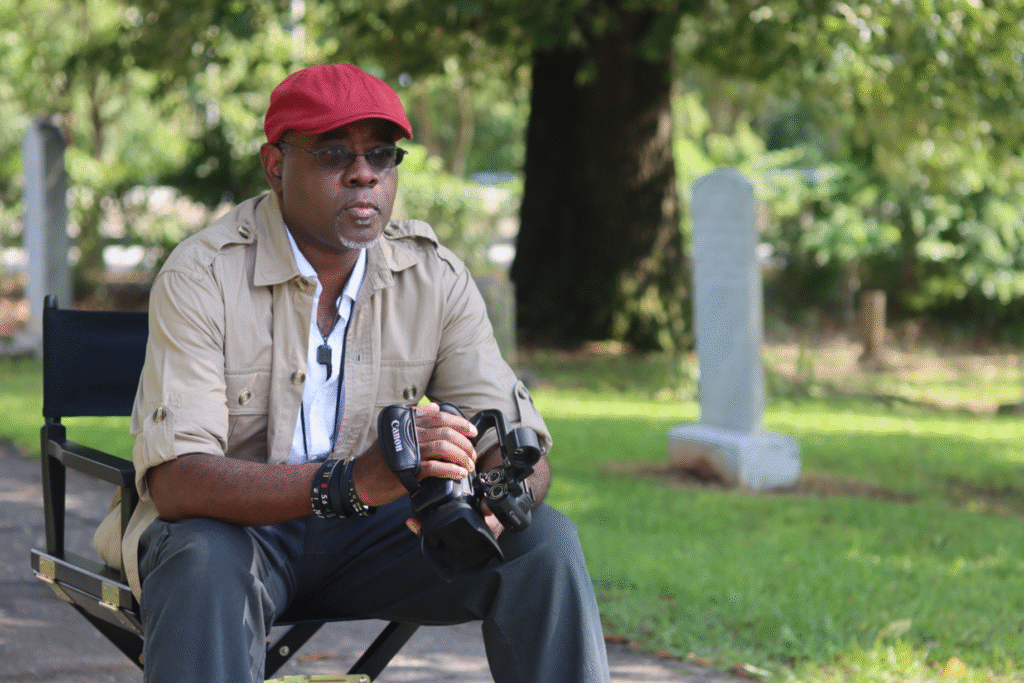
When Michael Bailey first stepped behind the camera, he wasn’t just exploring a new medium—he was stepping into a lineage of bold storytelling that challenges power, reclaims history, and centers the voices too often pushed to the margins. Now, with his second documentary, A Letter to Brother Elmore on the horizon, Bailey continues to grow into a filmmaker with a mission. And the imprint of Netflix and BET’s Emmy-nominated producer CJ Faison is unmistakable—in Bailey’s fearless storytelling, his embrace of unapologetic Blackness, and the sharp political edge that defines his work.
Bailey’s path to directing was authentic and inevitable. As a longtime journalist, multimedia correspondent, and photojournalist, he has spent years documenting minority life through interviews, news reports, and on-the-ground storytelling. His lens has always been focused on the lived experiences of underrepresented people—capturing the richness, struggle, and resilience often ignored by mainstream media. It was only a matter of time before those short-form community reports evolved into longer, more immersive narratives. His first documentary, E.W., offered an intimate chronicle of E.W. Cromartie, the first African American elected to Columbia’s City Council since Reconstruction. The short chronicle examined Cromartie’s transformative impact on the city and became a deeply personal exploration of legacy and leadership.
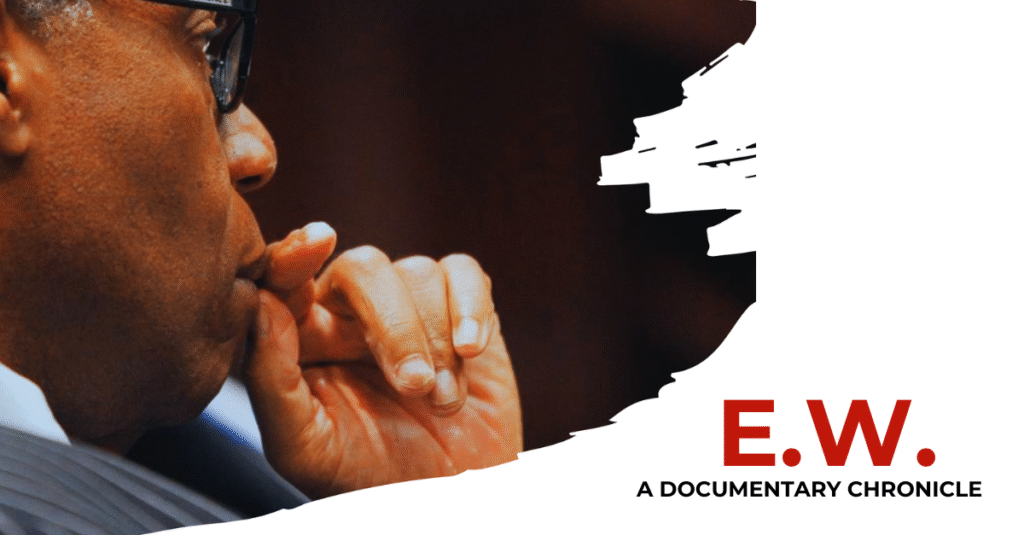
“You can Google the later years of Cromartie’s life,” Bailey says, “but they won’t tell you how deeply he impacted Columbia or the lives he changed. That’s the story I wanted to tell. My mission is to tell bold, unapologetic stories that empower our people—and A Letter to Brother Elmore continues that boldness.”
His follow-up project, A Letter to Brother Elmore, goes even deeper. The film centers on a quiet legal challenge brought by Dr. Johnnie Cordero, founder and former chairman of the South Carolina Democratic Black Caucus. Dr. Cordero’s lawsuit questions the legality of the South Carolina Democratic Party’s 2020 virtual elections, alleging that the party’s actions disenfranchised hundreds of thousands of Black voters in Richland County.
At first glance, the case may sound mundane and inconsequential—just another internal party dispute. But Bailey reveals a layered and urgent story beneath the surface: a sharp indictment of political strategy, performative allyship, and the eroding relationship between African-American voters and the Democratic Party. The film exposes a throughline connecting current voter frustrations to decades of struggle for access and representation as those tensions resurface in the recent surge of support for President Trump among Black men and Vice President Kamala Harris’s notable loss of support from the same demographic.
This isn’t just a documentary—it’s an indictment of the Democratic Party as a whole and a challenge to reckon with its deepening disconnect from African-American voters. A Letter to Brother Elmore doesn’t just examine events of the past—it reveals how those struggles echo in the present, drawing sharp parallels between historical battles for representation and today’s voter frustration. Bailey’s work doesn’t just document what’s happening—it confronts it, challenging party leaders and the public to engage with the uncomfortable truths behind the numbers. It offers a clear-eyed glimpse of what lies ahead, exposing cracks that could reshape political alliances leading into the 2026 midterms and the 2028 presidential election. The film sheds light on the very questions political strategists and party leaders will need to answer if they hope to maintain trust—and turnout—among African-American voters.
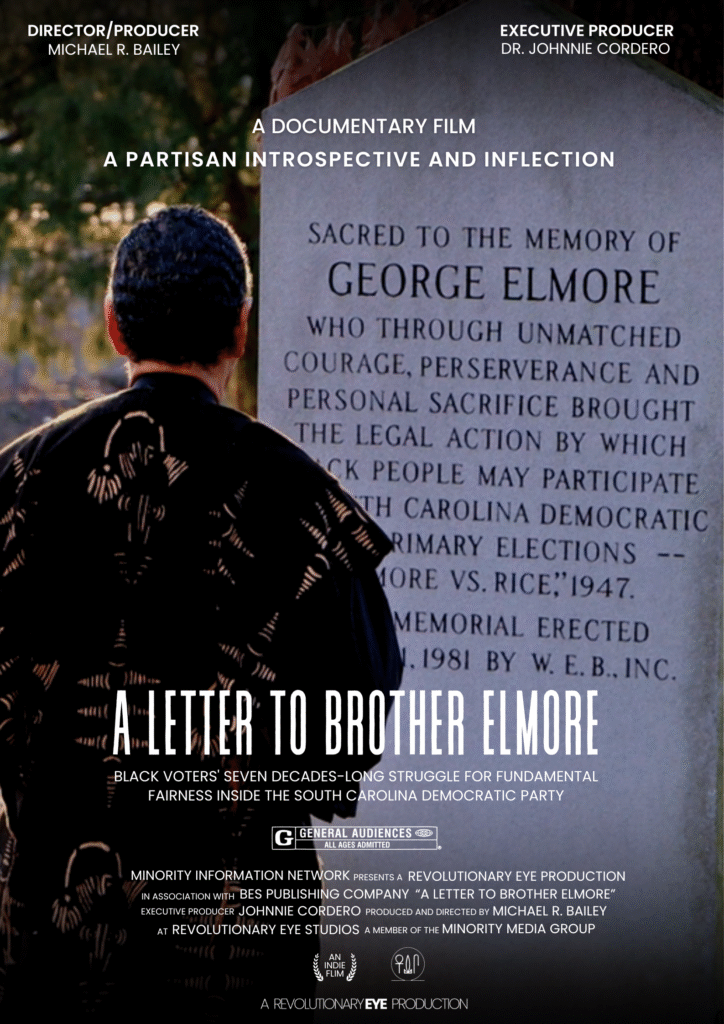
Mentorship that Moves the Work Forward
The idea for A Letter to Brother Elmore was further developed after Michael Bailey was selected for the highly selective and well-regarded Wide Angle Project, a film and television development lab operated by the South Carolina Film Commission in partnership with Trident Technical College. Designed to support underrepresented filmmakers across the state, the program provides emerging creators with direct access to professional mentorship, industry insights, and hands-on development of their scripts, treatments, and production strategies.
It was during this intensive program that Faison, a, Netflix and BET’s Emmy-nominated producer, was paired as Bailey’s mentor. Faison, known for his fearless storytelling and commitment to representation, provided critical guidance throughout the development of Bailey’s project. His mentorship became a defining part of the process. Faison’s body of work includes The Black Beauty Effect, a Netflix docuseries exploring the cultural and commercial politics of Black beauty, and Giants, the Emmy-nominated BET drama that tackled mental health, faith, and identity among Black millennials. His presence brought both creative insight and cultural clarity to Bailey’s unfolding vision.
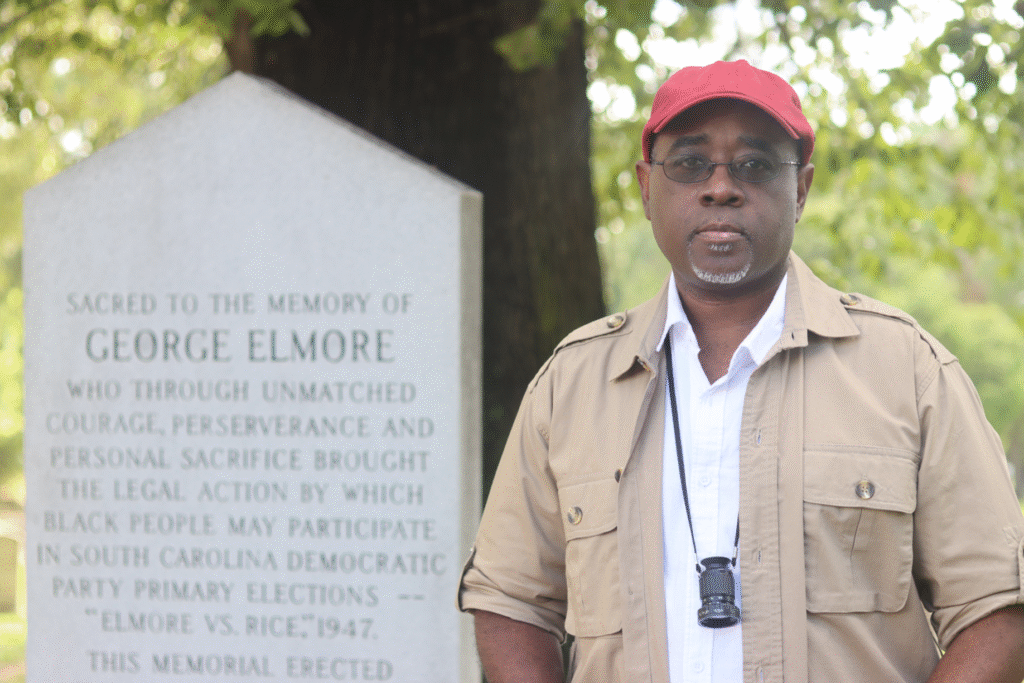
Faison’s mentorship wasn’t just professional, it was personal. As someone who rose through the industry without many mentors himself, he’s intentional about lifting others.
“One thing I always ask myself is, ‘Who are you lifting?’” Faison says. “I believe in lifting while climbing—making sure that as I continue my journey, I’m also reaching back to help others find their way.”
A Platform for the Future
While many independent producers are still trying to figure out how to get their films and content placed on traditional streaming platforms, Bailey has chosen a different path—one that puts ownership, access, and creative control front and center. With A Letter to Brother Elmore set to debut, the timing couldn’t be more significant. The film dives into pressing political themes rooted in South Carolina, a state that holds immense weight in national politics, especially for the Democratic Party during primary season. Given that backdrop, it’s likely the film will attract interest from major platforms once completed.
But Bailey isn’t looking to sell. Instead, he’s doubling down on Black ownership and creative independence. Rather than handing over rights to traditional streaming platforms, he is seeking strategic partnerships to invest in a new streaming platform, Minority INFO Plus, a dedicated space for independent Black and minority creators. The platform is a collaboration with Angela Carr Patterson, a former entertainment executive, author, and media producer who has spent decades helping others find their voice through television, performance, and self-development. A globally recognized visionary strategist and transformational thought leader, Carr Patterson has hosted international television shows, produced acclaimed documentary films, authored 13 books, and developed more than 25 personal development programs for women, teens, and children.
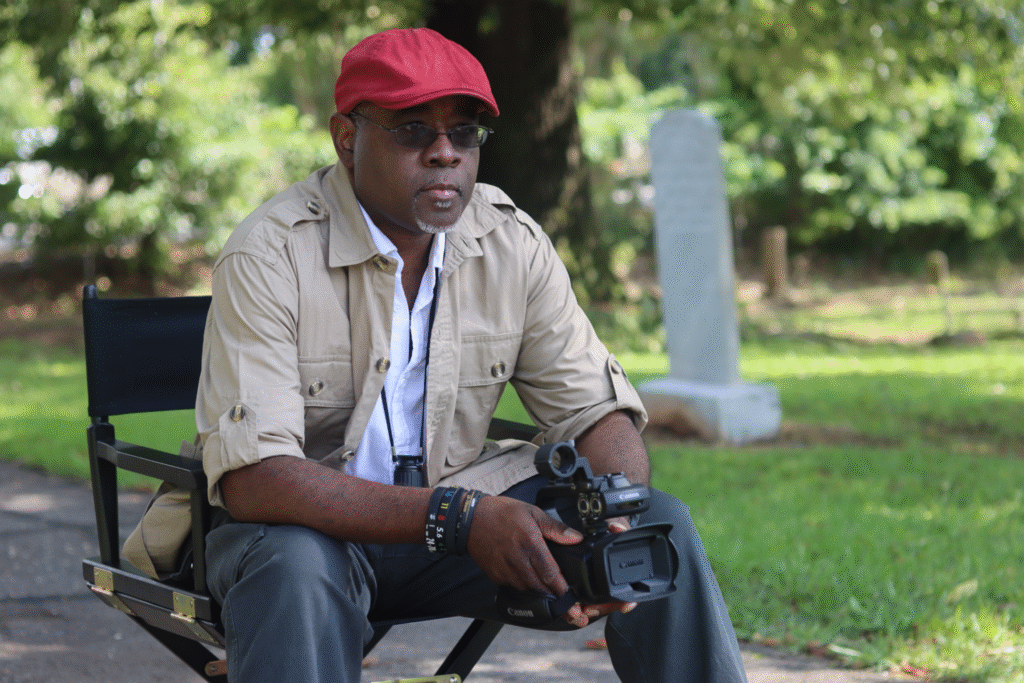
“My team and I always had the capacity and capability to build a streaming network,” Bailey says. “What we didn’t have was the vision. Angela helped me see something bolder and bigger.”
Michael Bailey
As someone who has produced multiple documentaries and shows for both national and international television and streaming platforms, I could never find a space that truly supported what independent producers like myself needed,” Carr Patterson adds. “After working with Michael on several of my previous documentaries and seeing the impact he created through the Minority INFO Network, I brought him my vision—and he brought it to life.
Angela Carr Patterson
Now, with a new streaming platform on the horizon and momentum building, Bailey is already looking ahead.
What Comes Next
As many media companies retreat from their commitments to diversity, equity, and inclusion, Bailey isn’t just holding the line—he’s pushing forward, doubling down on the very stories others are now too afraid or unwilling to tell.
“It’s only a matter of time before we see entertainment and media platforms pull away from telling our stories. We all know it’s coming. That’s why I’m being proactive instead of reactive,” Bailey says. “I’m building a media company with the digital infrastructure to compete, to reach minority audiences, and to make sure that when others try to erase us, we can still be seen—and heard.”
What Bailey began with E.W. is growing into a movement, one rooted in bold storytelling, strategic vision, and the power of collaboration. Guided by mentors like Faison and fueled by a commitment to community, Bailey’s next chapter is all about building platforms and partnerships that last.
In that spirit, Bailey is expanding his reach by working in partnership with other emerging, minority-owned production companies to elevate fresh perspectives and cultivate the next wave of independent media.
Among these new ventures is a collaboration with Royal Arts Media, a rising media production company that specializes in film artistry and content development for businesses, artists, and emerging brands. Bailey will lend his expertise in artistic direction and strategic marketing to support the company’s slate of upcoming projects, including a feature film currently in development led by Jasmine Watkins, a rising star in the indie film community. Watkins, who also co-stars in the project, is stepping into her debut role as lead producer, guiding the film from both in front of and behind the camera.
Bailey is also developing Gemz, a screenlife-formatted short documentary that explores how one woman uses her gemstone designs to align people with greater harmony and balance. The film profiles Desiree Artemus, a multi-talented content creator and jewelry designer whose wire-wrapped creations blend spiritual expression with fashion-forward designs, rooted in the traditions of metaphysical and energy-centered work. The result is jewelry that’s as meaningful as it is wearable.
Production on A Letter to Brother Elmore briefly paused while awaiting a decision from the South Carolina Supreme Court, but is set to resume soon. The film is scheduled for completion and release in early 2026. With mentorship as a foundation and bold storytelling as his guide, Bailey continues forward, offering not just a film, but a timely reflection on where we’ve been and where we’re headed.
📽️✨🎬 Who Should We Feature Next? 🎬✨📽️
Nominate a Newsmaker: Our strength comes from you. The Minority INFO Network doesn’t just cover the news—we elevate the people making it. If there’s a family member, neighbor, friend, leader in your community, or if it’s you, who deserves to Be seen, Be Heard, and Be known, share their story with us. Nominate them here.


